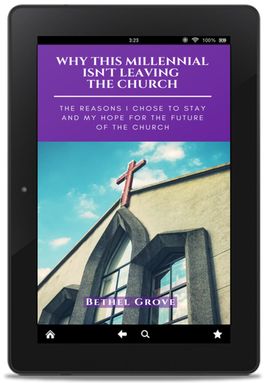|
When I first read the description of this book, I was drawn to it. It seemed like a book worth checking out, so that’s what I did. It was a book that took much longer than I expected to complete, but I was so grateful when I did. I enjoy the perspective of both Chris and Megan as their poured their hearts out onto the pages of this book. I completely relate to a desire to want to help women see their beautiful, their value, and their potential in Jesus, not in the answers our culture tries to provide. Although a few of their theological points were a little off and their some of the point of view shifts were a little confusing, I enjoyed the book and got a lot out of it. I also really enjoyed the chapter written by their husbands at the end of the book. If you have struggled with making peace with your reflection, this is a book I would recommend ~ Bethel “Beautiful” is a word that is overused and even misused in our culture today. Women in our world are constantly bombarded by messages that distort their understanding of beauty and self-worth. It makes many of them desperate reach for idealistic goals that no one can achieve and may even cause self-harm in the process of getting there. This often results in an obsession over our reflection or a hatred of our reflection. Either way, so many of us don’t know how we will ever see ourselves as beautiful. It makes us ask the question: Can I really make peace with my reflection? 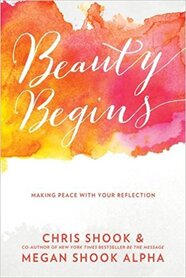 In the book Beauty Begins, Chris Shook and her daughter Megan Shook Alpha help their readers make peace with their reflection by finding the places where beauty does begin. This mother and daughter team walk through the lies that our culture sends that distort our perception of beauty. They help us identify our struggles in this area of self-worth, demonstrating that the scars from this area of brokenness can heal into something more beautiful. Finally, they encourage their readers to rebel against the mold that our culture tries to put them in. We are reminded that when we focus on our internal beauty through our thoughts, attitudes, and actions, that will be what will make us the most beautiful and will leave a legacy that honors the Lord. All of this is done in the context of Scriptures and stories from the lives of both Chris and Megan that make the truths they present stand out. When you come to the end, you are given hope that beauty can be found outside of our culture’s cookie-cutter mold, a beauty that will last into eternity. This book is honest and relatable in so many ways. This mother-daughter are a great pair for this project and you will hopefully be inspired to find true beauty, if you take the time to read. I would recommend this for girls about 15 and older. Get your copy today! *I received this book from the Blogging for Books program for the purpose of this review  Male-Friendly Rating. This book is a great option for fathers and husbands trying to understand issues related to beauty in our culture, especially since there is an addendum written by the authors’ husbands, Kerry Shook and Jordan Alpha, as a challenge to men. Even if their just read that portion, it could be of great value to them  Personal Rating. I had two critiques of the books. First, there were moments while I was reading that I struggled to identity the narrator’s voice between the two authors. Second, there were a few comments made throughout the book that I disagree with from a theological point of view. Aside from those small issues, this is a great book that I would recommend. Curious or confused about my ratings? Click here.
Have a book, movie, or musical you'd like to see me review? Click here
0 Comments
This book is incredible. From the moment I first heard about it, I knew that it would be. When I first signed up to participate in Moody Publisher’s Blogging Review Program, this book was absolutely at the top of my list. Being a single woman who’s never even been on a date and had so many questions I’ve been afraid to ask, this book was exactly what I needed to read at this time of my life. Although the bible study format is not my favorite setup based on personal preference, the study is a great opportunity to really dive in to these topics to build a solid foundation for our sexual theology based on the truth of God’s word. Personally, I wanted to consume the material so much, I read the book in only a week (about one week’s worth of material per day), which could be an option for you too. This book really inspires and challenges you to heal from past brokenness and draw into a deeper relationship with Jesus. I would totally recommend this book to college-aged girls without hesitation. ~ Bethel Women long for intimacy. It’s been that way since the beginning of time. Those of us that do not have that in a physical relationship struggle with how to fulfill these longings in a legitimate way. But most of us don’t even know where to start. We struggle with understanding how our sexuality can even be a part of our lives in a God-honoring way if there we are not married. This can often result in shame and the decision to compartmentalize our sexuality, to the point that we become “sexual atheists,” choosing to shut God out of the bedroom completely. It makes it harder and harder to determine what is and isn’t true, often because we are afraid or even embarrassed to ask the right questions. It makes many young women ask the question, “Can I be sexual, spiritual, and single at the same time?"  In the book study, Sex and the Single Girl, Dr. Juli Slattery guides her readers through 6 weeks that will answers your toughest questions, challenges your perspective, guides you towards healing and freedom, and helps you draw closer to God. Through 5 days of reading and questions for 6 weeks, Juli helps us understand why our sexuality matters, helping to understand the beauty of God’s grand design. She walks us through sexual boundaries, and helps determine where they should fall by creating a biblical grid. We learn to discern the difference between temptation and sin, and Juli gives us tools to stop temptation before it leads us to sin. Then Juli helps us come back to the feet of Jesus, understanding that our sexuality is part of who God created us to be, and no matter what we’ve done with it in the past, it can be reconciled to bring us into a more intimate relationship with Him. This is all done within the context of a study that guides readers through Scripture to support it. This book is profound. It answered so many of my questions by directly addressing single women. It helped me see that I can be sexual, spiritual, and single at the same time and still honor God in the process. I would recommend this book to any young woman 18 or older. Get your copy today! *I received a copy from the publisher for the purpose of this review  Personal Rating. My only criticism of the book is that the study format was not to my personal taste. I personally absorb more from reading a book straight without stopping for questions. However, I also recognize the value of writing this as a study, especially in a group setting. Aside from this, I give this book my highest recommendation to any adult single woman, hands down! To be honest, I’m getting a little tired of all the articles, blog posts, videos, and books that are titled something along the lines of – “Why Millennials Are Leaving the Church” or “How To Get Millennials to Stay in the Church.” But I’m even more tired of blog posts written by millennials titled something like “Eight Problems in Church Today and How We Can Fix Them.” Some of the most popular Christian spoken word videos fall into this category, blaming the church by blaming “religion” or blaming our elders for creating the problems that exist in the church's traditions today. Although two of the most popular (“Why I Hate Religion but Love Jesus” by Jefferson Bethke and “A Godless Generation” by Jon Jorgenson) are written by guys that I really like and respect, I don’t agree with some of what they are saying. Although I am well aware that my generation as a whole seems to be more prone to walk away from the faith they were raised in, I don’t think most of these articles or the rants on YouTube are really helping us arrive at the best solution to the problem. What usually ends up happening is a vicious cycle of the older generation blaming the younger generation for blaming the older generation, and it keeps going around and around. In the end, neither side proves their point or demonstrates Christ’s love in the process. 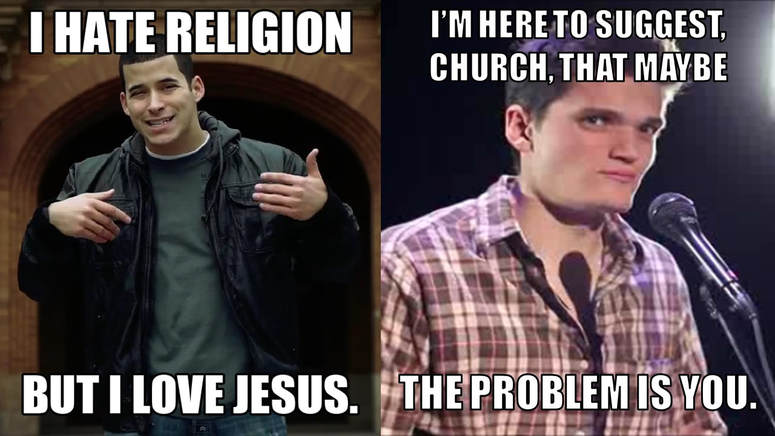 [Disclaimer: I love and respect Jeff and Jon a lot. In fact, I've met both of them in person and they are great guys. They inspire me to do most of what I do online today. However, I do see the fault in some of their logic. Nothing I say about them here is meant to be demeaning or insulting to them or their fans. I'm just sharing truth as I understand it. This got me thinking about myself and those in my generation that have stayed faithful to the church into our adulthood. I find it funny that many of them are contributing to these debates more than anyone else at times. I admit that there may have been a time in my early college years when I might have sided with my generation, and I highly agreed with what my peers are saying. But since I've graduated college, I've come to value the opinions of the older generations as I have heard it explained by my parents or grandparents. So in the end, I want to attempt to take the middle road to help both sides find understanding and peace. Unlike most of the articles written in this discussion, I want to give you the list of reasons I chose to stay in the church, which will hopefully help everyone understand what all of us can do to help bring my generation back in. Here we go: 1) I Was Taught The Basic Reasoning Behind My Faith Last year, I went through the Bible study for the book Not A Fan by Kyle Idleman with a small group from my church. Although by the end of the study I saw so many of Kyle's viewpoints as being strongly millennial in their nature, one point he made stood out from the rest. In the video curriculum for this study, Kyle was taking about parents that were asking him about why their adult children had left the faith when they had grown up. Most of then didn’t seem to understand why this happened, since they raised their children in the church. But one father was different from the others when he talked his estranged daughter. After explaining the story of his daughter walking away from her faith, this father realized, “We raised her in the church, but we didn’t raise her in Christ.” This story really stuck out to me as I think back to many of the kids I went to Christian school with. Out of 50-60 kids I was in high school over the years (a rough estimate, averaging 35-40 per year), there are less than half of then that I can confirm that they are still living out their faith (give or take a few). Less than a third of us went to Christian colleges. Less than 5 of us made the choice to pursue ministry as a career. I know all too many of this same group that have left the church, rejected Christianity, and are living for themselves in their lifestyle choices. And those that fall in between, they don’t live their lives in such a way that they stand out for their faith. That’s sad. What I think is different for me from many young people of my generation is that I was taught from a young age the reason for the hope that I have. This goes far beyond learning your Bible stories in Sunday school or memorizing Scriptures because you are required. It even goes beyond knowing that Jesus died for your sins. This is having a basic understanding of proper apologetics, or defense of the faith. It’s knowing that there is proof that Jesus did die for your sins and then rose again, and any life that is lived outside of that knowledge and the salvation found there is incomplete. 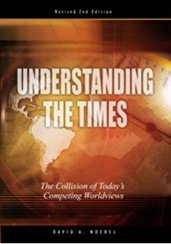 My senior year of high school, we were required to take an apologetics-type class through David Noebel’s curriculum, Understanding the Times, which evaluated the most popular worldviews today, including Islam, Secular Humanist, Marxism, Cosmic Humanism (New Age), and Post Modernism. We compared all of these world views against the logistics of the Christian worldview in 10 different areas: theology, philosophy, ethics, biology, psychology, sociology, law, politics, economy, and history. Through this study, I observed that from a logistical standpoint the Christian worldview the most complete and precise of all worldviews. Every other worldview has huge holes in it when examined closely, and the people that uphold those worldviews are almost always contradicting themselves in some way, shape, or form in order to hold onto their beliefs. This study taught me the reasoning behind my faith. There were several classes I took in college and a number of books I read that did the same thing, chief among would be The Case for Christ by Lee Strobel. Through the author’s investigative journey, we learn that when the evidence for Christ’s death and resurrection are examined closely, it honestly takes more faith to hold on to atheism that it does to accept Christianity. This is the kind of thing we need to be teaching the kids of this generation. Am I saying that every teenager needs to take a college level apologetics course? No, but I am saying that we have to find ways to teach kids how to defend their faith, not just know what the popular Bible stories are and how to memorize Bible verses. They have to know that what happened in the Bible is true and it changes everything. Most of those kids I went to school with could probably still tell you the details of certain Bible stories, but many of them never took it to heart because they did not understand from a logistical standpoint why they needed to hold onto their faith. That made them susceptible to being deceived by worldviews that are full of holes. They rejected the truth because they didn’t know why it was the truth in the first place. This is what we must avoid if we want to keep my generation in the church. We have to stop just raising kids in the church, but we need to raise this generation in the knowledge that Christ did indeed die and rise again for our salvation. 2) I Was Taught That Truth Is ObjectiveBecause post-modernism is so prevalent in our culture today, more and more people are believing that truth is subjective to the individual. Truth is relative and never absolute. That is what the majority of what our world believes or is being convinced to believe, whether they realize it or not. Unfortunately, with the way our education and political systems are set up today, this is being presented as the best and superior worldview. Not only do they treat every other worldviews as inferior and unintelligent, but their methods end up indoctrinating those of us that aren’t on our guard against it. That’s where most Christians are. They’ve been taught the Bible stories, but they aren’t fully convinced that everything in the Bible is true in light of the competing views they are being presented on a daily basis. Soon, they start to question things like if God really did create the world in six literal days or Paul’s teaching on women being allowed to teach in worship assemblies. These things aren’t salvation issues (which is another discussion for another time), but when they start to question those issues in this way, they then have license to question the integrity of God’s word as a whole. The next thing you know, they have disregarded God’s word entirely, because they never believed it was absolutely true in the first place. From the time I was a child, I was taught that truth is truth, and God’s word is the physical representation of truth itself. We can and should believe in everything it says, and trust God’s wisdom as it has been revealed to us in the Bible. We shouldn’t question its validity and try to reinterpret it to fit our needs. If any of us do struggle with doubt, then we should do our research into the sources that will help us verify the truth. When we know it to be the truth, we need to take it as it is and live by it. It breaks my heart to see so many that have been raised in the church that either walk away from the faith they once professed or if they stay in the faith are much too liberal in their interpretation of the Bible, because they read the Bible subjectively, just like the world wants them too. This problem would be easy to fix if the church as a whole decided that they would view the Bible’s truth objectively and encourage the next generation to do the same. Unfortunately, this is easier said than done in our predominantly post-modern culture. But I think we can change the tide if we begin to learn for ourselves and teach the younger generation the Biblical view of truth. 3) I Was Taught To Value Christian CommunitySurrounding yourself with solid Christians who share your beliefs is an indispensable part of the Christian life. Yet most people don’t treat it like it is. I actually had a high school friend that told me that he thought he didn’t need to go to church to be a good Christian. Since we were both students at a Christian school, he felt that he got enough Bible learning from being in school that being a part of a Christian community outside of school didn’t matter to him. (In the end, he left the school less than a year later and didn’t remain in the faith after he left. Big shock there, right?) Although it’s true that God doesn’t literally say, “You must consistently attend church in order to be a good Christian, or you have sinned against me,” it does show us how important fellowship was to early church and it encourages us to function as a body, not in isolation. Now I know there are some cases with persecuted Christians around the world in which having consistent fellowship with a church family isn’t possible. But when I watch the how many of my Christian peers are BFF-ing with primarily worldly friends while their church friendships are put on the back burner, I realize how significant it is for us to make our Christian friendships our closest friendships. It’s true that Jesus spent time with sinners and the social outcasts of His day. But those that did not devote themselves to God’s way weren’t his closest friends. His closest friends were His disciples, who had committed to learning from Jesus as their Rabbi. Even Matthew, although he was a tax collector, was a Jew who understood the Old Testament well enough that his gospel demonstrates his knowledge of Jesus’ fulfillment of prophecies about the Messiah. We would all do well to learn how to develop this kind of community. From the time I was very little, my closest friends were Christians, and I was told that this was the way it should be. For most of my childhood, teenager, and college years, Christians were exclusively the people I was close to. Aside from going to church every Sunday, I participated in many different programs with Christians at the heart of all of them. Christians schools, Homeschool groups, American Heritage Girls (a Christian version of Girl Scouts), a Christian charter for 4-H, Christian camps, Christians conferences, choir tours with my alma mater, and the list could go on. This isn’t to say that I didn’t know and have a few friends here and there that were not churched, especially kids in my neighborhood. However, I knew that my priority and energy should be placed in investing in my friendships with other Christians first. Especially when it comes to the friends you would seek out for advice, it’s crucial that their advice is grounded in truth and not based on feelings and worldviews that don’t line up with God’s word. If you do have a wide pool of friends, neighbors, and co-workers that do not share your faith, it’s OK. Just remember that you need to learn how to have your faith become an influence on them, and not let their worldviews or lifestyle choices rub off on you. Another thing that I was taught to value was Christian community that spans the gap between generations. I love to spend time with kids and teens. I have been volunteers at a couple of different churches in both children’s and youth ministries, including being a youth leader at my current church. I think that healthy youth and children’s programs are vital for the growth of a healthy church. But on the other hand, I also enjoy getting to spend time with the older generation, my parents and grandparents’ generations. I love to hear stories of how church used to be to see the progress of what it has become today. But unfortunately, the older generations have in recent years struggled to connect with the younger generation, mostly because of the “generational gap” that was created in the minds of those trying to explain why so many of my generation aren’t staying in the church. But in truth, we were all to blame. When youth ministry really began to come on the rise in the 1970s, it changed the way youth participated in church, because they made their programming completely separate from the adults. Some churches even went so far as to have a separate service for the youth, giving them little to no time to fellowship with the older generation and choosing a style of worship and lessons that only appealed to young people. The results is that the kids are so used to hanging out with only people their own age, they don’t know how to identify or belong with the content of the adult community when they graduate. Beyond that, most small churches struggle with having ministries for young adults (about 20-30 years old), especially for those that aren't married. As a result, so many of my peers will literally say out loud, "The church has nothing for me," and then walk away. We have to learn how to bridge the gap between all the generations in order for the church to thrive, in order to draw the younger generation in. We have to learn how to get older people involved in our youth and children's ministries to help mentor our kids, and how to get our teens to be involved in other ministries in the church so they will identify with adults and learn to serve. I have heard some people tell me that the youth are of the church of tomorrow. I don’t think that’s true, for I personally believe that we are all the church today. We all need to somehow figure out how to act like it. 4) I Was Taught that Christianity Is a Personal Relationship With Jesus I get really annoyed with my own peers going on and on about grace in such a way that practically tries to absolve themselves of responsibility for their sin or bad choices. They talk about how wrong it is for the older generation or the church to impose so many rules on anyone that wants to be included. In “A Godless Generation” Jon Jorgenson asks why anyone would want to stay in the church when all we will do is treat people “as a project on which we can project a list of rules.” Although it may be true that this is the perception, phrasing it this way is a major turn off, and doesn’t help anyone arrive at a solution. I absolutely understand that no one is perfect. I understand that many of us struggle with accepting grace when we mess up. On the other hand, talking this way about our spiritual elders not only comes across as spiritual and theologically arrogant, but it also reduces Christianity to a list of rules that no one can keep. That doesn’t attract anyone to the church and drive a greater wedge between the church and the rest of the world as well as further the generational gap that has once again been created in the minds of my peers. From the time I was a child, I was taught that Christianity was not about rule-keeping. Yes, I did have rules for how to live from my parents, and there were consequences when I disobeyed, but I knew that wasn’t the most important of my faith. I learned from a young age that my faith was a personal relationship with my Lord and Savior. My parents taught me that even when I did mess up, they would always forgive me, and so it is with Jesus. There wasn’t anything I had to do to win His favor other than accept His salvation. However, part of that relationship was learning to trust Him enough to obey his principles of my life as outlined in His word. These are all key truths to understanding our faith, and it’s something we need to get back to teaching the next generation. 5) I Came To My Own Conclusions Based On What I Was Taught I’ve honestly had some people I’ve interacted with through comments on my YouTube channel tell me that I was brainwashed. Just because I was a PK, raised in a Christian home, and either homeschooled or in private Christian education my whole life, that I was forced into accepting Christianity and therefore had no ability to be objective when it came to discussing topics like science or politics. In truth, each one of them proved this to be true about themselves when it came to their atheism. Nothing could be further from the truth. I have mentioned several truths that I was taught over the course of my childhood, but they were not forced on me. When I got to about the right age, my parents started to ask about when I wanted to commit my life to the Lord through baptism. But for many, many years, I refused and kept putting it off. It wasn’t that I didn’t love Jesus or that I didn’t accept the truths of Christianity that they taught me. There were a couple of reasons I hesitated (which is another story for another blog post), but it all boils down to my struggle with the concept of surrender. Because I had been raised to know and love the Lord, I knew that making that commitment would demand me denying myself, taking my cross daily, and following Jesus with everything I am. That terrified me for many years, so I waited. But do you know what my parents did? They gave me my space and let me wait until I was ready. They did ask again every few months, but they were patient with me. They knew I would make the commitment when I was ready. I think my dad first asked me when I was seven or eight. I didn’t get baptized until I was 13. But because I waited as long as I did, I really did understand what I was doing when I made that commitment. And things have never been the same since that day. Please Don't Give UpThis constant blame game has worn so many of us thin. The older generation struggles with wanted to give up on most of my generation, because they just refuse to listen. My generation wants to give up even being a part of the church, because we see so many flaws in the church, or we feel like we don't fit in. I want to encourage everyone on both sides not to give up. Older generation, I know that you are frustrated that you are constantly getting blamed for the church’s problems. But the really solution on your end is not giving up; it’s to learn how to mentor the next generation while they are still young and moldable. Help them learn what it means to stand on God’s word as their absolute authority. Then they will be much most likely to trust your advice or spiritual wisdom when you offer it. And do what you can to make sure that there is a place for my generation to feel welcomed into the church. Whether it be a young adult ministry of some sort, or just making sure they feel welcomed into pre-existing ministries, make sure that they don't feel left out, or they will never come back in. 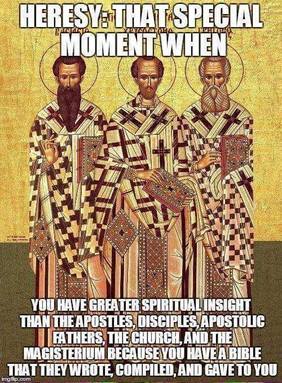 Millennials, we were the ones that started this mess, but I still think they we can figure out how to get out of it. First of all, we need to learn to trust the spiritual wisdom of our elders. Yes, there are some traditions they uphold that are not necessarily founded on Scripture. But many of our elders have been Christians longer than we have been alive. Assuming that you know better than them is arrogant, ungodly, and needs to stop. We need to stop putting words in their mouths that no one really said in the first place just to give us someone to attack (Like when some millennials claim that pastors are always talking about "What's wrong with kids today?", but I have never actually heard a pastor say that. Have you?) The same goes when it comes to understanding or trying to reinterpret Scripture. Don’t fall into the trap of assuming you know better than anyone else. Especially if they have experience. This picture illustrates my point. Secondly, we struggle with a system of religion and rules since most of us feel like we don't fit in. We want to blame on our parents and grandparents generations for creating, but you need to understand that this is not their fault! Many of these flaws have been developing since the church was founded as a result of human misunderstanding, so we should not blame our parents’ generation for it. We need to understand that the church is not perfect, but we still have to learn to be a part of the church at it is right now. We cannot use our irritation with rules and tradition as an excuse to treat the church like it’s an evil sect or cult that we have to disavow for our holiness. Jesus prayed unity among everyone that would come to believe through the message of the apostles (John 17), but in order for Jesus’ prayer to be fulfilled, we have to learn to be a part of a church congregation, no matter how difficult it is. Even if they isn't a college age or young adult ministry doesn't mean that there is no place for you in the church. I have found that the best solution when you find that there are no ministry that are specially for you is to be involved in other ministries as a leader or a teacher, like youth or children's ministries. You will be much less likely to feel out of place in the church if you are intentional about finding ways to fit in. All the generations involved in this discussion have to learn that there are more important things that being right. When it comes to trying to resolve this issue most of the time, we tend to become so passionate about our viewpoint, we sacrifice the importance of relationship for the satisfaction of winning the argument. That is wrong, even if you are right. That is arrogance and pride. The church will never survive if this kind of behavior continues. However, we do have to judge each other in the sense of accountability, not in condemnation or condescension. The most quoted verse in the Bible, especially by the millennials, is Matthew 7:1 “Do not judge or you too will be judged.” However, this verse is almost always taken out of context. We say God doesn’t want us to judge anyone, but we choose to ignore passages like 1 Corinthians 5, where Paul is judging the sexually immoral man and he asks them “Are you not to judge those inside the church? God will judge those outside. ‘Expel the wicked brother from among you.’” (1 Corinthians 5:12a-13, NIV84) God is responsible to bringing everyone outside the church to account. We are responsible for holding each other accountable when we are aware of a significant sin in someone’s life. If we don’t learn to stop arguing to be right and start judging to hold each other accountable, the church will never grow. In fact, the church will probably die on the vine. But if we learn humility in unity, the church will never be the same ConclusionIf we learn how to train children in the way of the Lord, they will make the decision to follow Jesus of their own free will when they are ready. And they will really understand what they are doing. You won’t have to drag them to church. You won’t have to force them to read their Bible or attend youth group. They will want to because they will understand the reason for the hope that they have in Christ. But we have to help them see past the world’s deceptions, stand on the truth of God’s word, how to value their community in Christ, and how to make their relationship with Jesus a personal one. That will be what will get this generation to stay. We need to remind them that we are all the church today. To conclude this post, I want to share my newest spoken word that inspired this post. I hope this video and this post will start the conversations that will lead us to change. But it has to start with us. If you like this video, please like it, leave a comment, and share the video or this post with the hashtag #weareallthechurchtoday. When I was part of the launch team for the book Girl Defined a year ago, our whole team received this ebook as a gift. I was quite excited about it, since I was really inspired by Girl Defined and enjoying studying the topic of modesty. When I finally took the time to read it, I couldn’t put it down! I loved Bethany’s and Kristen’s perspectives on the topic, especially when it comes to grounding our view of modesty in Scripture. This is something that millennials need to learn, not just in relevance to modesty, but in all areas of life. I was challenged to re-evaluate my own standards, which is a good thing to do when it comes to modesty because fashion is an ever-changing presence in our culture. It challenged me to remember that my standards of modesty must always seek to honor God, which is exactly what these girls do. Their passion came through once again as it did in Girl Defined. Part of me wishes that the book could have been longer and had been a physical book! This is a great resource that I would highly recommend to women of all ages ~ Bethel When it comes to modesty, most girls don’t want to think about it. We have all had fights with our parents about the appropriateness of our outfits. We all want to be beautiful and attractive without regarding the consequences. So many of us have bought into the lie that modesty and fashion do not go together and therefore, we can’t honor God and still keep up with the latest fashion trends. Our culture is trying to sell to us that the less clothes we wear, the more attractive and empowered we will be as women. All the while, as we reveal more of our body on the outside, we also expose our struggles with attitude and selfishness on the inside. These leaves so many of us caught in the tension of wanting to honor God, but not wanting to dress like our grandmothers. It makes us ask the questions: What does God think about modesty? Is there a way to dress modest and fashionable? 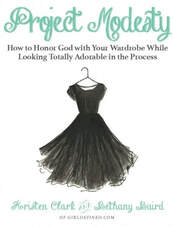 In the book Project Modesty, Kristen Clark and Bethany Baird share a biblically grounded perspective about the importance of modesty in the life of a Christian woman that wants to honor the Lord with her life. They walk through the problems with our culture’s views on how much we can take off and then they walk us through the reason why we even have to wear clothes, tracing it always back to the Garden of Eden and the first sin. They help us understand that modesty isn’t about rules; it’s an act of obedience to God and shows gratitude for all Christ did for you. They even bring in the opinions of a few guys to help us understand the importance of making modest wardrobe choices. After they walk through the reasons, they actually demonstrate what modesty looks like, and how you can still be fashionable in the process of being modest. They devote about half the book to walking through their personal modesty standards in several different areas of clothing, and then showing you how you can wear things modestly but including dozens of full color pictures of Kristen, Bethany, and their younger sisters modeling their fashionably modest outfits. In the end, you are left with a powerful challenge to honor God in your wardrobe choices, but you are reminded that you can still dress fashionably in the process. I love how theological sound and straightforward this book is. Bethany and Kristen pack a lot of great truth into this eBook and this is one that I highly recommend. This eBook is currently only available for purchase on Bethany and Kristen's blog, Girl Defined Ministries. To purchase a copy, click here. Get your copy today!  I don’t know if I will ever forget hearing Beth and Darrell share Rachel’s testimony. I was in 8th grade at a private Christian school and our school was invited to a special chapel service at another local Christian school. Most of us didn’t even know what it was about until we got there. At this point, it would have been almost 6 years after the tragedy of Columbine, but most of us remembered that day even if we were just kids. I’d heard stories about a few of the victims dying after they were asked if they believed in God, but I had a hard time telling them apart from each other. But after hearing Beth and Darrell, Rachel’s story will forever stick out in my mind. We all left that service so moved and challenged by what we heard. Rachel was beautiful young woman with a beautiful heart devoted to living for Christ. The more I learn of her story, the more I am inspired to live my life fully for Him. I believe everyone else that reads this book will be inspired to do the same. ~ Bethel April 20, 1999 was one the defining tragic moments of my generation. On that day, two teen boys entered their school in Littleton, CO with weapons, including guns and bombs. When most of their bombs didn’t go off, they resorted to shooting their fellow students, especially those of a minority or those that profess to be Christians. In the end, 12 students and one teachers died before the shooters took their own lives. Some of the students were reportedly asked if they believed in God, and those that answered ‘yes’ were shot. But one victim’s response stood out above the rest. Rachel Joy Scott, after having been shot three times, was picked up by the hair and asked “Do you still believe in God?” She answered, “You know I do.” Her shooter than told her, “Then go be with him.” Her answer has left her a powerful legacy that has endured for years after her death, but also continued to unfold for years after she passed away. 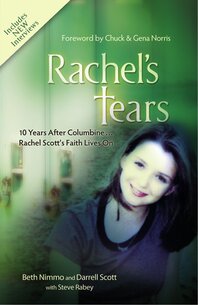 In the book Rachel’s Tears, Rachel Scott’s parents Beth Nimmo and Darrell Scott share more than just the story of her death, but share about how she inspired and cared for others while she was still alive. They take turns sharing stories of the ups and downs of Rachel’s life, including the struggles their family faced when they divorced, the experiences surrounding the shooting, and many of the good things that have come from the experience of losing their daughter. You also hear stories that others told about her, including part of a chapter written by her youth pastor Lori Johnson. You also get to see some of her writings and drawings from her private journals. The result is that you are given a picture of young woman who truly hungered for a deeper relationship with the Lord, who wanted to live out her faith, and wasn’t afraid to live out her faith, even when it eventually cost Rachel her life. Through this book, you come to understand that enduring this tragedy was not easy, for Rachel’s brother Craig was also at the school and continues to heal from everything he witnessed that day. But you also come to realize that Rachel’s death was not in vain, that God has made something beautiful out of the ashes of grief and tragedy. God made something beautiful out of Rachel’s Tears. This book is powerful and moving, and one that I highly recommend. Get your copy today! |
Lion's Eyes Reviews is a blog dedicated to reviews of Christian books, most of which are non-fiction, but may also occasionally review movies and musicals. It will also feature the work Bethel does to help launch and promote the works of Christian authors.
The name is derived from one of Bethel's favorite books, Through the Eyes of a Lion by Levi Lusko. Through these reviews, Bethel hope to give Christians the tools they need to look at the world "through the eyes of a lion" so they can find the courage to "run toward the roar". To find the detailed archives of these reviews, you can check them out here: Books In Review Movies in Review Broadway In Review Quick Reviews To understand the rating used in these reviews, click here Categories
All
Archives
May 2024
|
|
Bethel Grove is a Christian young woman who loves to read and write, eat Reese's Peanut Butter Cup Blizzards, and disciple teen girls as a youth leader. What started as a hobby of writing book reviews and doing deep biblical studies eventually led her down the path of self-publishing and helping other Christian authors launch their books. She hopes to someday be a vocational youth minister and well-known author.
Follow AUthor Bethel Grove
|
Receive This eBook for FreeSign up for Bethel's newsletter to receive monthly updates for Abiding Grace Ministries, and you will receive a copy of this exclusive eBook for free
|






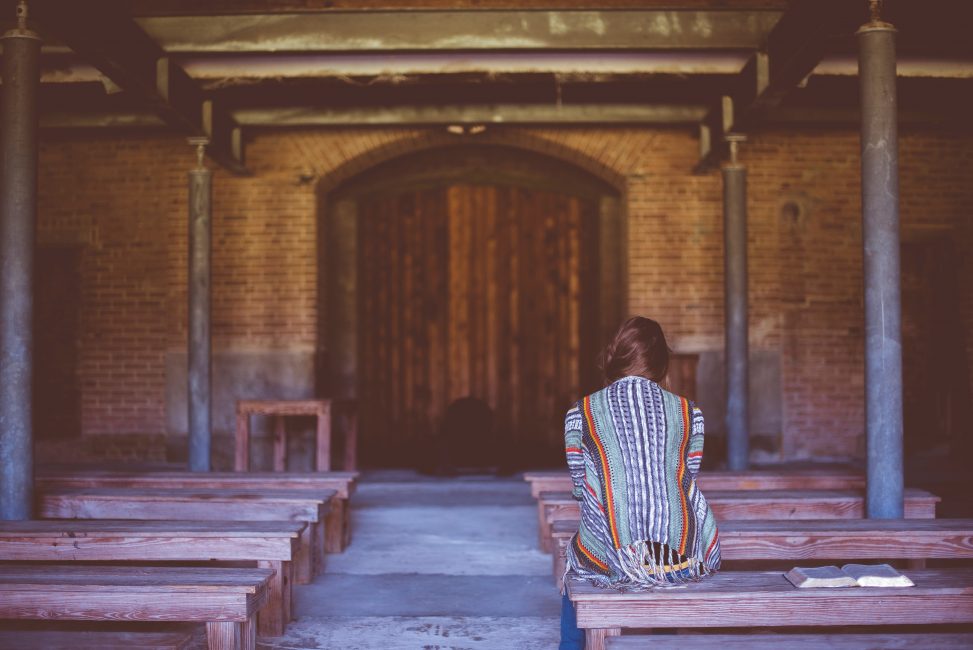
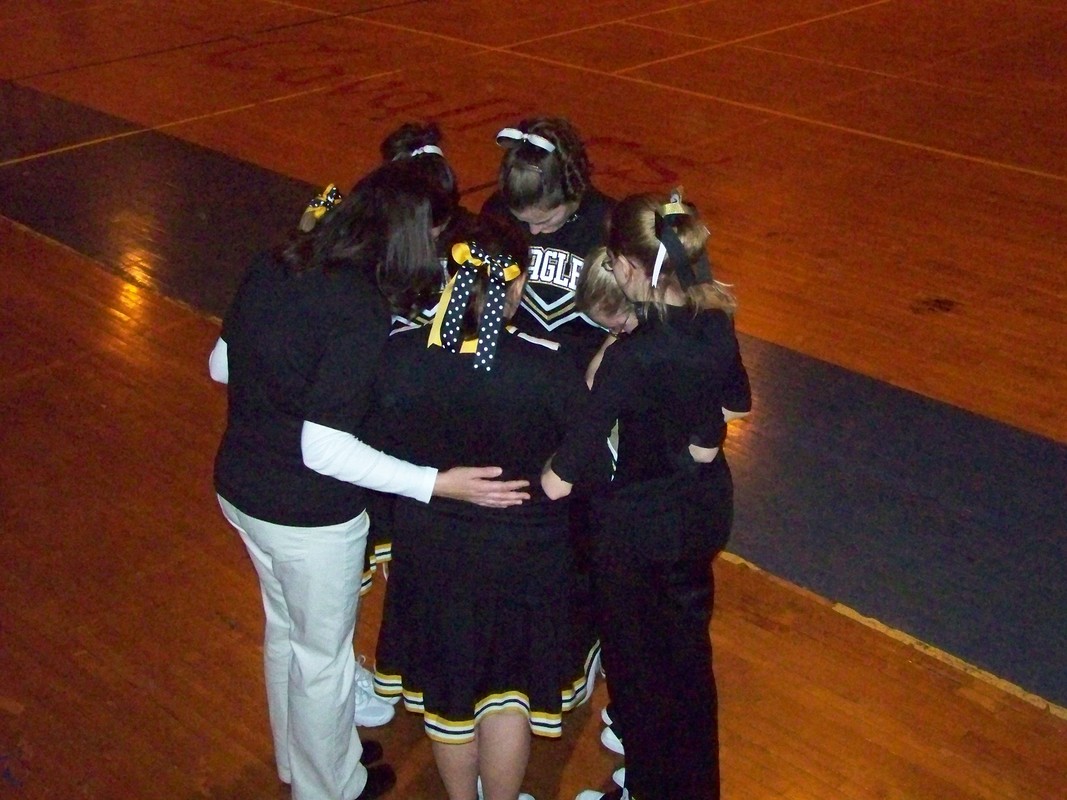







 RSS Feed
RSS Feed

